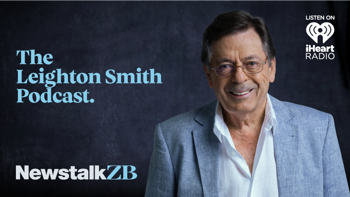Follow
the podcast on


New Zealand has the third highest adult obesity rate in the OECD, and the rates are going up. One in three adult New Zealanders is classified as obese, and one in 10 children. Even if you take into account, yes, yes, yes, a lot of the All Blacks front row are considered obese if you use the BMI. And yes, you might have a slow metabolism or it's your hormones and there's nothing you can do about it, that's still a lot of fat people and a lot of associated health issues.
The cost of obesity in this country is estimated as being between four and nine billion dollars per year. It's a huge range, four to nine billion, but it's where you classify the different illnesses, and it depends on which survey you look at. Even if you go at the lower limit, $4 billion is a hell of a lot of money to spend on something that doesn't need to happen. Cardiovascular disease alone costs more than three billion. The human misery too that comes with being obese for many kids and adults is another intangible cost.
But now we have a drug for that. GLP-1 is the magic ingredient. It regulates blood sugar levels and slows down the rate at which food leaves the stomach, thus making people fuller for longer. And apparently, according to those who've used it, it turns off the chatter in your head, the constant thinking about food. Well, if I have this and then I walk for an hour and then I'll be able to have something else. Ooh. Ooh, I'm not hungry now, but ooh, imagine what I could have for dinner. Planning the next meal before you've actually finished the one in front of you. It's that constant food chatter. I think Oprah was the first one to talk about it, how she never realised until she took the magic drug, that you didn't have to listen to that noise in your head, that other people didn't have it.
So the GLP-1-mimicking drugs seem to be a powerful tool. They're actually effective. And after decades of research and money being poured into weight loss drugs, this one seems to work. More importantly, this one doesn't have the side effects of the speed drugs that were given out in the 70s as diet pills. It was basically methamphetamine. Some people are losing around 15% of their body weight or more after just over a year on the semaglutide.
Wegovy became available to New Zealanders in July. It's not publicly funded. It's a weekly drug and comes at an ongoing cost of about $500 a month. Should it be funded?
David Seymour, the Associate Minister for Health, seems to think so. In the past he said, well, if you spend a buck to save five, why wouldn't you? Although as he points out, Pharmac's decisions are independent of any ministers. The NHS in Britain has done the sums. If the weight loss drugs were prescribed to everyone who needed them according to the stringent criteria, the prohibitively expensive cost would bankrupt the NHS even after taking into account the cost of the health problems that they would inevitably solve. So you would have to do the sums for this country to work out whether it would pay off in the long run. If that's what it does, if, you know, one buck is going to save us five long term. If a huge cohort, in every sense of the word, of New Zealanders is going to live a better life, a healthier life as a result of the investment, surely it's worth it?
But to get buy-in, you would have to get the support of the majority of New Zealanders. One in three adult New Zealanders is classified as obese, two in three aren't. And they might say, well, I'm doing everything right for my body. I'm doing the exercise and I'm not greedy. Some might well see obesity as a moral failing. Throughout history, it's been seen as a moral failing.
One of the seven deadly sins is gluttony. In Dante's Inferno, the gluttons are consigned to the third circle of hell. Gluttons are people with uncontrolled appetites who worship food as a kind of God, according to Dante. Therefore, the gluttons' punishment in the third circle of hell, instead of eating fine delicate foods and wines, they're forced to eat filth and mud and be rained upon by foul smelling rain. Cerberus, the dog, ravages them and mauls them. It's a miserable punishment.
Gluttons have always been seen as moral failures. Which may, I think, have been fair at a time where resources were scarce, and if you were wealthy, you got other people to get food for you and you ate it at the expense of the poor. But these days, when the food industry is making money out of processed food designed to hook you in and give you an insatiable appetite for more, I think we can take the moral failing out, can't we?
Most people know what to do. There's far more to it than just calories in, calories out and more exercise, and even the makers of Wegovy and Ozempic and the like understand that too. They say it's not going to work on its own. It's the same with bariatric surgery, you have to do so much more than just stop the food going in. There is much, much more to it than that.
If we do the sums, the NHS says they've done them and the cost is too high. But if we do the sums for this country, and ultimately, we spend a dollar to save five, why wouldn't we? Why wouldn't we put everybody who wants the Wegovy onto it?
Take your Radio, Podcasts and Music with you









